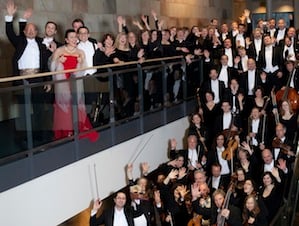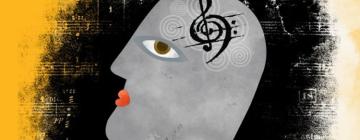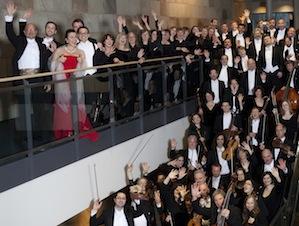
Photo by Gene Kosoy
The first weekend of the American Bach Soloists 2012 Festival & Academy (which continues at the San Francisco Conservatory through July 22) brought an interesting, Bach-related concert under the title “The Leipzig Masters.”
The masters in question are the four composers who at one point held or were considered for the position of Thomaskantor at St. Thomas Church in Leipzig, the job that Johann Sebastian Bach famously held from 1723 until his death in 1750.
Bach’s predecessor, Johannes Kuhnau, had died in 1722 and the Leipzig Town Council was trying to find a new candidate for this important musical position. As it turns out, Bach was only their third choice. First, the Council tried to lure Georg Philipp Telemann (1681–1767) away from Hamburg. When that fell through they went after Christoph Graupner (1683–1760), then Hofkapellmeister (court chapel master) at the court of Hesse-Darmstadt, but his employer would not let him go.
Graupner even wrote an audition piece for the position in Leipzig, a Magnificat in C Major, which the American Bach Soloists (ABS) programmed for Saturday night’s concert, together with Kuhnau’s cantata Ihr Himmel jubilirt von Oben, Telemann’s overture La Bourse (The stock exchange), and J. S. Bach’s Orchestral Suite No. 3 in D Major, BWV 1068. Altogether they provided a nice overview of German Baroque music.
Reticent Master
Based on this concert, you could easily come to the conclusion that Graupner is the most interesting Baroque composer you have never heard of. His Magnificat is amazing, particularly in the slower movements, where the long melodic lines intertwine beautifully. The Et Misericordia for soprano, oboe, strings, and continuo, a 48-or-so bar movement in the middle of the piece, is breathtaking. Under Music Director Jeffrey Thomas’ capable hands, the American Bach Soloists truly let the Magnificat shine; you can imagine why the Leipzig Town Council initially wanted Graupner over Bach.
It may be a matter of opinion whether Thomas is somehow playing it safe or is simply respecting the integrity of the music.
It is slightly unfortunate that the otherwise beautiful main Concert Hall at the San Francisco Conservatory does not seem to be particularly friendly to a relatively small Baroque ensemble like ABS. The music and the overall sound of the ensemble would benefit from an acoustically richer environment, something more churchlike. As it is, that hall sounds a bit dry, and it is also obvious that the vocalists sometimes have a hard time hearing each other on stage, especially in the smaller-ensemble parts of Kuhnau’s cantata. For instance, in the duet “Hilf mir es, Jesu,” the alto and the bass were not always in sync with each other and the accompanying basso continuo. When asked, an ABS member confirmed that performing in this venue requires some “faith-based singing” now and then.
As a larger ensemble, the ABS orchestra was less affected by the acoustical qualities of the concert hall. After intermission, Thomas guided his players through Telemann’s overture La Bourse and Bach’s third Orchestral Suite, the two instrumental pieces on the program, with a lot of attention to detail, specifically with regard to the wind players. Meanwhile, he seemed to shy away from any form of exaggeration or enhancement in dynamics or articulation.
It may be a matter of opinion whether Thomas is somehow playing it safe or is simply respecting the integrity of the music, though as far as I am concerned he could easily get away with a little more drama. Both Bach and Telemann can take it.

